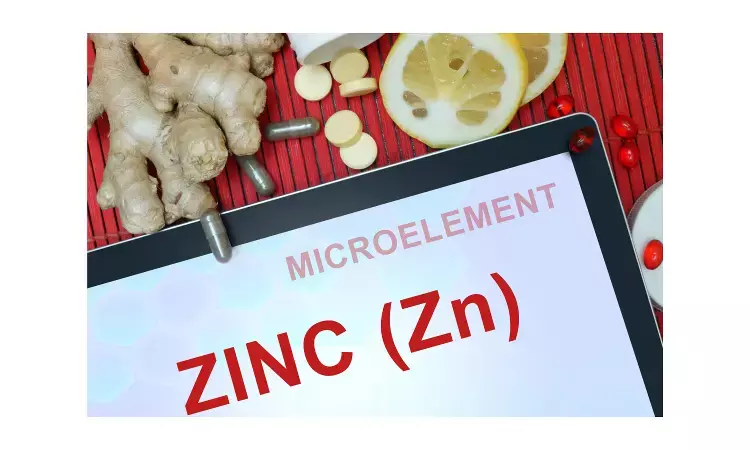- Home
- Medical news & Guidelines
- Anesthesiology
- Cardiology and CTVS
- Critical Care
- Dentistry
- Dermatology
- Diabetes and Endocrinology
- ENT
- Gastroenterology
- Medicine
- Nephrology
- Neurology
- Obstretics-Gynaecology
- Oncology
- Ophthalmology
- Orthopaedics
- Pediatrics-Neonatology
- Psychiatry
- Pulmonology
- Radiology
- Surgery
- Urology
- Laboratory Medicine
- Diet
- Nursing
- Paramedical
- Physiotherapy
- Health news
- Fact Check
- Bone Health Fact Check
- Brain Health Fact Check
- Cancer Related Fact Check
- Child Care Fact Check
- Dental and oral health fact check
- Diabetes and metabolic health fact check
- Diet and Nutrition Fact Check
- Eye and ENT Care Fact Check
- Fitness fact check
- Gut health fact check
- Heart health fact check
- Kidney health fact check
- Medical education fact check
- Men's health fact check
- Respiratory fact check
- Skin and hair care fact check
- Vaccine and Immunization fact check
- Women's health fact check
- AYUSH
- State News
- Andaman and Nicobar Islands
- Andhra Pradesh
- Arunachal Pradesh
- Assam
- Bihar
- Chandigarh
- Chattisgarh
- Dadra and Nagar Haveli
- Daman and Diu
- Delhi
- Goa
- Gujarat
- Haryana
- Himachal Pradesh
- Jammu & Kashmir
- Jharkhand
- Karnataka
- Kerala
- Ladakh
- Lakshadweep
- Madhya Pradesh
- Maharashtra
- Manipur
- Meghalaya
- Mizoram
- Nagaland
- Odisha
- Puducherry
- Punjab
- Rajasthan
- Sikkim
- Tamil Nadu
- Telangana
- Tripura
- Uttar Pradesh
- Uttrakhand
- West Bengal
- Medical Education
- Industry
Zinc might help reduce symptoms and duration of RTI: BMJ

Zinc deficiency is responsible for 16% of all deep respiratory infections world-wide provides a first strong hint on a link of zinc deficiency with the risk of infection and severe progression of COVID-19 and suggests potential benefits of zinc supplementation.
A randomized trial by Jennifer Hunter and team revealed that Zinc might help to stave off respiratory infection symptoms and cut illness duration. Zinc deficiency in adult population was a risk factor and zinc might prevent Respiratory Tract Infections (RTIs) symptoms and shorten duration, however the comparative effectiveness of different zinc formulations and doses were unclear.
The findings of the study are published in BMJ Open journal.
The objective of the study was to evaluate the benefits and risks of zinc formulations compared with controls for prevention or treatment of acute viral RTIs in adults.
The study was a Randomised Controlled Trials (RCTs), 17 English and Chinese databases were searched from April/May 2020 to August 2020 for SARS-CoV-2 RCTs. Cochrane rapid review methods were applied. Quality appraisals used the Risk of Bias 2.0 and Grading of Recommendations, Assessment, Development and Evaluation (GRADE) approach.
The results of the study were
• Out of 28 RCTs 5446 participants were identified. Sublingual zinc did not prevent clinical colds following human rhinovirus inoculations.
• On average, symptoms resolved 2 days earlier with sublingual or intranasal zinc compared with placebo (95% CI 0.61 to 3.50) and 19 more adults per 100 were likely to remain symptomatic on day 7 without zinc (95% CI 2 to 38, NNT=5, low-certainty/quality).
• Clinically significant reductions was seen on day 3 symptom severity scores (mean difference, MD −1.20 points, 95% CI −0.66 to −1.74, low-certainty/quality), but not average daily symptom severity scores (standardised MD −0.15, 95% CI −0.43 to 0.13).
• Non-serious adverse events (AEs) were higher (RR 1.41, 95% CI 1.17 to 1.69, NNHarm=7,).
• Compared with active controls, there were no differences in illness duration or AEs (low-certainty/quality).
• No serious AEs were reported in the 25 RCTs that monitored them (low-certainty/quality).
Hunter and team concluded that "In adult populations unlikely to be zinc deficient, there was some evidence suggesting zinc might prevent RTIs symptoms and shorten duration. Non-serious AEs may limit tolerability for some. The comparative efficacy/effectiveness of different zinc formulations and doses were unclear. However, they also stated that further research, including SARS-CoV-2 clinical trials is warranted.
Reference:
doi:10.1136/bmjopen-2020-047474
bmjopen-2020-047474
Medical Dialogues consists of a team of passionate medical/scientific writers, led by doctors and healthcare researchers. Our team efforts to bring you updated and timely news about the important happenings of the medical and healthcare sector. Our editorial team can be reached at editorial@medicaldialogues.in.
Dr Kamal Kant Kohli-MBBS, DTCD- a chest specialist with more than 30 years of practice and a flair for writing clinical articles, Dr Kamal Kant Kohli joined Medical Dialogues as a Chief Editor of Medical News. Besides writing articles, as an editor, he proofreads and verifies all the medical content published on Medical Dialogues including those coming from journals, studies,medical conferences,guidelines etc. Email: drkohli@medicaldialogues.in. Contact no. 011-43720751


